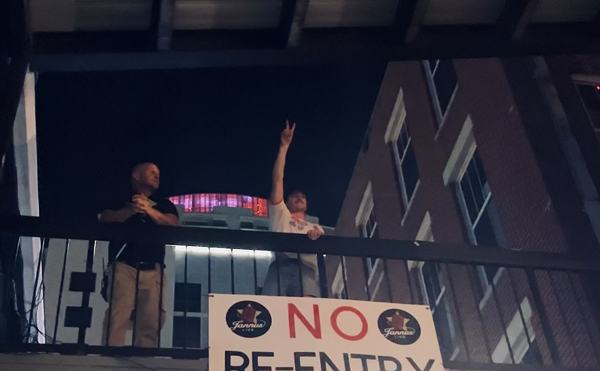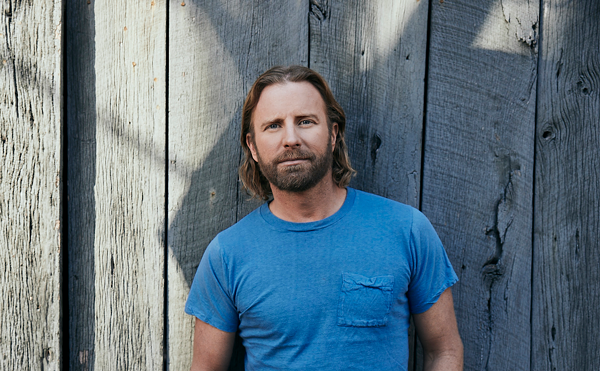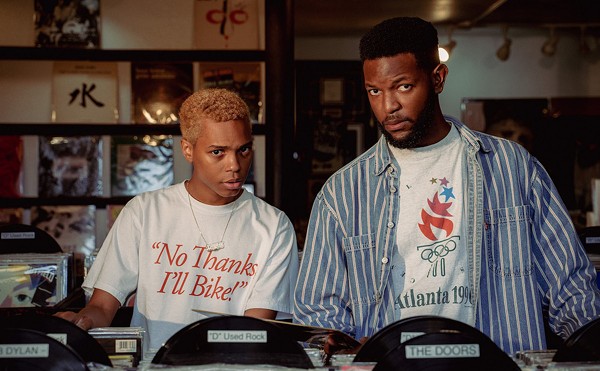Out of sheer curiosity Al Burian was contacted. What had happened? Where’s the new album? Absolutely shocking how months and years pass by quickly and the occasional perusal of websites reveals no new information.
Burian, singer/guitarist for two of my all time favorite punk/hardcore bands Milemarker and Challenger, currently resides in Germany, and agreed to an interview, one question at a time, that took place over the first three months of 2010. When the interview began I completely forgot that Burian also writes his the zine called Burn Collector, consisting of ridiculously entertaining autobiographical accounts of his travels and living situations in various metropolitan burgs across America, and was even moreso surprised that the candidness and honesty represented in those writings easily manifested in his emails, a transaction of conversation normally reserved for hasty responses lacking the depth and thoughtfulness of a penpal.
Recently, Microcosm Publishing released the newest edition of his zine, Burn Collector 14, and this fall PM Press reprinted a book containing Burn Collector 1-9.
Burian also sent along a photo to accompany the interview, along with the message “Myself inside the coliseum in Rome. Behind me you can see the arena where they used to feed Christians to lions.”
Creative Loafing: What are you doing in Europe? How long have you been there? What are you doing there?
Al Burian: I’m just doing my usual thing. I have German citizenship so staying here is no problem. I moved to Berlin last spring, in a pretty spontaneous decision. I found myself here and with no job or place to live back there. I had a moment where there was a flash of realization: that I could just stay. And so I stayed.
What's your "usual thing?" And what are you doing for money? You can't survive on your good looks alone like Henry Miller, can you?
Whenever I meet artists I tell them I’m a musician and whenever I meet musicians I tell them I’m a writer, and so on—so I guess my “usual thing” is trying to stay productive, do what I want, and not feel boxed in. And you are right, it is hard to find gainful employment with that attitude. I’ve always managed to scrape by somehow, but, for instance, one of my goals with moving to Europe was to get some health insurance, which is a luxury I could never afford in the USA. Socialized medicine in Europe, right? No, unfortunately. It turns out the health care situation in Germany is only slightly less of a mess than in USA. But I did end up wrangling some insurance out of them, as well as a few other benefits. Right now I’m gainfully unemployed, getting my basic expenses paid by the state. The downside of the German system is that the job center seeks out jobs for you. They could call me at any moment with a job offer, and I have re-occurring nightmares about getting a call where they’ve lined up something for me as a car mechanic or a lifeguard. So far, no calls, and I’m spending my aimless days trying to get some writing done. I’d spent a good amount of time in Germany before moving here, so it hasn’t been a total culture shock. My mom is German, and I grew up speaking it, so language barrier is no problem. Though, I will say, there is a certain longer-term strangeness that seeps in as time goes by—not so much a sudden culture shock, more a slow blooming realization of the subtle differences. When I went to Japan, my first impression was that it wasn’t very different—sure, I couldn’t read the signage, but I could recognize, OK, this is a grocery store, this is someone’s apartment, this is a kitchen, etc. and it all seemed about the same. After about a week of having the subtle differences compound themselves, though, I felt like I was tripping on acid. Everything, all the little details, seemed totally, mind-bogglingly weird. Germany is a lot closer to the US in many ways, plus there is no language barrier for me, so the differences have crept up very slowly. It took about four months before I felt like I was tripping. German society in general is very ordered, very regimented. The common example that people point to is how no one will cross the street if there is a “don’t walk” signal, even if there is no traffic in sight. As a wild-west American, your first impulse is to brazenly march across the street, you know, show some autonomy, be an individual, it’s common sense, there’s no cars coming. You feel smug about showing the herd how herd-like they are. But after a while, like having a mohawk as a teenager, you just get tired of people staring at you all the time and giving you weird looks, so you try to fit in. And what I found, at that point, was that it is actually pretty hard to re-socialize yourself into cultural norms you are not familiar with. I constantly find myself in situations where I realize that I am acting really weird, and that there is no way I can shut it off, in fact I can’t even quite exactly figure out what I’m doing wrong. It’s actually a quite similar feeling to being mentally unbalanced.
What are you writing? Songs? Essays? Stories? What are they about?
I’m working on a new zine, focusing around Berlin, that I hope to put out later this year. The last thing I did (Burn Collector #14) was very Chicago-centered, and between sending it off to the publisher and getting it back from the printer, I had moved out here. So now it feels strange to have that as my newest object to show for myself; it feels out of date to me already. I want to get something done that’s more representative of now. Otherwise, I’m working on another, longer story, generally about nervous breakdowns. And I have a couple of side project writing plans, so going back and forth with it all is keeping me pretty busy. I’d like to work on some more comics this year too. As far as music, I haven’t done too much of it since I’ve been here.
It seems like you've written stories about nervous breakdowns before. What fascinates you about nervous breakdowns? What's the protagonist going through? Do you do any psychological research to study up on how one acts during such a spiral? How low does he go? I only ask this because I was today captured by a strange old memory. I was 6 or 8, and during that time my dad worked at the mall selling suits, and in passing he mentioned one of his employees (that must've been 45 or so and I was friendly with) had "suffered a nervous breakdown." Being a kid, I didn't really understand what those strong string of words meant and in a random moment of having nothing to chat about I asked the guy what that was like, having a nervous breakdown. I don't remember his response but I remember the terror stretch across his face as he walked away. Weird that you reference nervous breakdowns, something I never think about, on the morning this memory came to me for the first time in almost 20 years.
The topic has come up before in stories I’ve written, although in recent years I’ve had some experiences that have made me realize that I didn’t know what I was talking about at that time; my definition of “nervous breakdown” was a pretty lax. A lot of people exhibit aberrant behavior within the punk scene and get away with it because it is more tolerated in that social context; I’ve taken advantage of that myself, and gone to some mental brinks while still blending into my surroundings. The last couple of years I was living in Chicago, for instance, I played in a band that was playing shows constantly, and I refused to carry any equipment, own a guitar amp, or put any effort into organizing ones to borrow. My attitude was, if there is an amp there that I can use, I’ll play, if not, too bad for you all. I was having some kind of deep crisis about music and expressing it in this weird denial of the physical objects associated with it. My band-mates, rather than kicking me out or recommending me a psychiatrist, just considered it a funny quirk of mine. But that’s what I’m interested in, the idea of sanity being a social construct. In the story you are recounting, for instance: say a 45 year old man walks into his job at the mall one day and announces, “I’ve been wasting my life selling suits! Don’t you people see how meaningless this all is?” Maybe the security guard escorts him away, and he gets fired, or even taken to a mental hospital if he won’t calm down. But is what he’s saying totally crazy? The other salesmen are obligated to think so, otherwise they cast their own lives into doubt, and that is the path to unraveling. If only this poor guy had been a 20 year old with some crimethinc literature! Then his actions would be pretty normal for his social context, and what he was saying would make sense to everyone around him. I had the reverse problem: when I finally started coming to an active crisis about my life in Chicago, it ruptured the social fabric I was in. My band mates were much happier rounding me up an amp than debating the fundamental futility of our motivations. I don’t know if you’ve run across a lot of people who are losing their minds, but my experience is that they often have a lot of lucid, intelligent and insightful things to say, and that bums people out considerably. People get medicated and put away all the time, not because they stop being able to think clearly, but quite the opposite, because they start thinking too much, they can’t bottle up their feelings anymore, and eventually they make others feel and question in ways that are counter-productive to daily routine. In some way this is the extreme front line of the battle between the individual and social institutions.
It sounds like Milemarker/Challenger are on definite hiatus. Will you ever make new records again? When I last saw live Milemarker, maybe three or four years ago in Gainesville, you guys played mainly older songs; it was like a collection of greatest hits. Were you even aware back then (before your aversion to amps) that your interest in making music was dwindling?
The last couple of Milemarker tours we did (in the US and then in Europe), we did self-consciously play a sort of “greatest hits” set-list. That was partially a bit of self-irony (since, as you alluded to earlier, we were often perceived as being indifferent or openly hostile towards audience expectations), and partially because if someone recognized those songs, it was a way of hopefully communicating: thanks for paying attention, thanks for sticking with us. It’s actually pretty possible that either or both of those bands will make another record. All of the principal players are still friends, still creatively active, and still in communication, so I could easily see it happening. I would probably not be the one actively pushing for it, but if it happened I would be glad to participate; making music is fun, and it’s a good social outlet, a good way to hang out. The part I’m not that into is the pressure from labels, the stress of touring, the investment of self that leads to bruised egos and personal conflicts. I guess it is not exactly a dwindling interest in making music per se, more a lack of interest in the identity of being a musician. I don’t really sit around and “write” songs. For me music is more about the collaboration. Until I find some people who I am motivated to make music with, I’ll probably stick to other things. I’m a little confused about what the end result of music is supposed to be anyway: a good show? A good record? A Myspace site? I think music is in a strange period right now, as a form in general.
It's funny you mention the end result of music. Especially that one of the ends is that you distill it down to such a cynical common denominator as Myspace page. More often in interviews I've sensed the confusion, and in this context the musician sometimes mentions his apprehension for the record album. Yet every week I purchase and listen to albums, and listen to them all the way through, side A and side B. If more people were more vocal about their love of the album as a whole, do you think you'd be so confused? Not everyone has an I-Pod and downloads music and visits social networking sites. And I wouldn't describe those people as stubborn either. Has your perception of the listener changed? With the sort of music you make, did you ever really care what the listener thought? and if 'n/a' to those, then what's your predominant trepidation in the current climate of music?
I grew up, of course, listening to music on LP, and my motivation for producing music was to make LPs. A-side, B-side, cover art—I was into the whole package, it made sense to me, and a good all-around record is a pretty satisfying object to make. It’s interesting to realize, though, that the format which you and I grew up taking as the norm is a relatively recent phenomenon. Recorded music hasn’t existed that long, and it wasn’t until the 20th century that you could mass-produce slabs of plastic which you insert into an appliance and it plays any type of music you can imagine. The idea of the album was a not-quite one-century blip in the formatting history of music, and dictated by market and technological forces, not by artists’ innate desire to write concept LPs. We just happened to grow up within that blip, so we see that as the natural way music should be presented. Contemporary (21st century) music seems completely defined by its adjustment to the paradigm shift of the digital age. That goes for how it sounds, who is making it, who is consuming it, and how they get access to it. I don’t think it’s bad, but I’m still waiting to see how things re-align themselves. In the meantime, I guess I just don’t have a strong urge to participate.
You said before that you're trying to find a job through a state-run service. Have you found one yet? What sort of jobs are they offering you? I was also wondering what it's like not to have a job in another country, since I kind of know what it's like to not have a job in America. At first, it's a good time and then you have no money and a realization of how much time is squandered begins to take hold. Do the differences of Germany allow that time to at least be more interesting? Is there anything in Germany that's a surprising phenomenon?
I’m on unemployment, basically, on German welfare. The way that the system works here is, you sign up at an office and give them a list of your skills, degrees, and experience, and then they are supposed to try to match you with a job. Meanwhile, all of your basic costs are covered. I guess I have a weird and pretty unmarketable set of skills, so I am still waiting for them to call me. Germany is not that different from the US, basically a well-off first world country, and able to put more of their resources into creating a minimum social safety net for their citizens, since they are not investing huge portions of the GNP into fighting wars abroad. The current state of things does seem long-term untenable, though. An odd economic quirk in Germany is that there is no minimum wage. So many jobs pay ridiculously low wages, where working full-time you don’t make what you would for being on unemployment. Where’s the incentive to get a job?
Now that you're in a place where no one knows you, and music is no longer a focal point of your daily efforts, are people often surprised by your past? I mean, Milemarker has its own Wikipedia page (which I doubt you contributed to). Do you ever show people your old music? Are they surprised by the covers? Like the Anaesthetic one for example? (And on a side note, what's the inspiration behind that album cover?)
It surprises me how many people I meet who were at a show we played sometime in the last decade, and the vivid memories they’ll have of it. It makes sense, because Milemarker played in a lot of small towns all over Germany, and a lot of the kids at those shows have ended up moving to the big city a few years later, and if I go to shows and such I’ll run in to those people there. It always does surprise me though. I guess I didn’t register how many people we actually played to in the time when we were really touring a lot. I’ve got no clue what was going on with that Anaestheic cover. The record had an original title of “Rise Up Friends” and was supposed to be kind of animal liberation themed, with all the songs about different animals, etc. Somehow all that ended up left over from that idea was the winged Pegasus. Then we tried to do packaging where the lyrics would be printed on the inside of the inner record sleeve, so you’d have to rip open the record sleeve to read the lyrics. Despite specific instructions, the printer, of course, folded the jackets so that the lyrics were readable on the outside. They probably figured we were just high when we wrote out the instructions or something. Anyway, overall Anaesthetic is not the most cohesively executed record of all time.
What do you think is your most cohesive artistic endeavor? in writing and music?
It’s hard for me to judge; I tend to be pretty self-critical, and only more so as time goes by and I look back on things. In a way it’s the dissatisfaction with past efforts that gives me the drive to do something new, to try to redeem myself. Also, when I think of projects that seemed to have turned out well or held up over time, it seems kind of arbitrary. There seems to be no formula to it. The Milemarker record Frigid Forms Sell, for instance, was no less haphazardly put together than any of the others- there are three different drummers on it, for instance- but somehow that one seems to have the most solid aesthetic and message, to communicate something specific and unconvoluted. Burn Collector #8 was the first long-form novella style of writing I did, and the first zine I put together that pointed to maybe being able to do something more ambitious with writing- and yet, I wrote it in a few weeks while crashing on someone’s couch in North Carolina; I didn’t even have a computer at the time. I think with creative endeavors you just have to do your best, try to supersede yourself a little every time, and accept that, as Haruki Murakami said, “they can’t all be winners.”
















